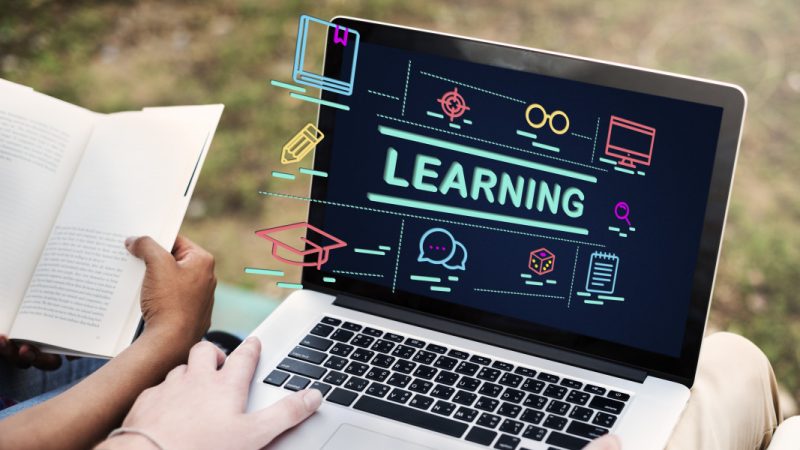Education has long been recognized as one of the most critical pillars for personal development, societal growth, and economic progress. Its impact extends beyond the classroom, shaping not only individual minds but also entire communities and nations. The value of education lies not only in acquiring knowledge but in fostering critical thinking, innovation, and adaptability in an increasingly complex world. Understanding the multifaceted nature of education can illuminate why societies that prioritize learning consistently experience sustained growth and resilience.
The Foundation of Knowledge and Skills
Education is fundamentally about equipping individuals with knowledge and practical skills. From early childhood to higher education, structured learning provides the framework for cognitive and social development.
Early Childhood Education
- Cognitive Development: Early exposure to language, numbers, and problem-solving exercises strengthens neural connections, preparing children for advanced learning. Studies show that children engaged in structured learning before age five develop better literacy and numeracy skills later in life.
- Social Skills: Early education settings also cultivate collaboration, communication, and empathy, essential traits for future success.
- Long-Term Impact: Programs such as preschool initiatives and early intervention schemes have been linked to higher high school graduation rates and better career outcomes.
Primary and Secondary Education
- Foundational Knowledge: Core subjects like mathematics, science, literature, and history provide a baseline of understanding essential for navigating the modern world.
- Critical Thinking: Curriculum design that emphasizes problem-solving and analysis develops students’ ability to reason logically and make informed decisions.
- Emotional Intelligence: Extracurricular activities, peer interaction, and mentorship opportunities foster resilience, leadership, and social adaptability.
Higher Education and Vocational Training
- Specialization and Expertise: Universities and technical institutes provide advanced knowledge in specialized fields, preparing students for professional careers and research.
- Innovation and Research: Higher education institutions serve as hubs for innovation, generating new technologies, scientific discoveries, and intellectual frameworks that drive societal progress.
- Economic Mobility: Access to higher education is strongly correlated with higher income levels and improved job security, highlighting its role in reducing economic disparities.
The Role of Education in Society
Education is not merely a personal asset but a societal necessity. Its influence permeates economic, cultural, and political spheres, reinforcing social cohesion and collective growth.
Economic Development
- Skilled Workforce: Educated populations contribute to economic productivity by providing a skilled labor force capable of adapting to technological advancements.
- Entrepreneurship and Innovation: Exposure to knowledge, mentorship, and resources fosters entrepreneurial thinking, leading to new business ventures and economic diversification.
- Global Competitiveness: Nations with robust educational systems often dominate in technology, science, and industry, giving them a competitive edge on the global stage.
Cultural Preservation and Evolution
- Language and Literature: Education sustains cultural heritage by teaching languages, history, and arts while encouraging critical engagement with traditional narratives.
- Social Values and Ethics: Schools and universities impart ethical reasoning, civic responsibility, and social awareness, contributing to a more inclusive and equitable society.
- Intercultural Understanding: Cross-cultural studies and exchange programs promote tolerance and global awareness, fostering peaceful coexistence in diverse communities.
Political Engagement and Civic Responsibility
- Informed Citizens: An educated populace is more likely to engage in political processes, understand policy implications, and hold leaders accountable.
- Advocacy and Leadership: Education empowers individuals to champion social causes, advocate for rights, and contribute meaningfully to public discourse.
- Sustainable Governance: Democracies thrive when citizens possess the critical skills to participate in decision-making and resist misinformation.
Technological Integration in Education
The integration of technology has revolutionized the way education is delivered and accessed, expanding opportunities for learning beyond traditional classrooms.
E-Learning Platforms
- Accessibility: Online courses and virtual classrooms provide flexible learning opportunities for students worldwide, overcoming geographical and economic barriers.
- Personalization: Adaptive learning technologies allow for customized educational experiences, accommodating individual learning paces and styles.
- Resource Availability: Digital libraries, simulations, and interactive tools enhance comprehension and engagement, making complex concepts more tangible.
Artificial Intelligence and Education
- Automated Tutoring: AI-driven systems can provide personalized guidance, monitor progress, and identify knowledge gaps in real time.
- Predictive Analytics: Institutions can analyze data to predict student performance, enabling timely interventions and improved outcomes.
- Curriculum Innovation: AI supports dynamic curriculum design, integrating emerging fields like data science, renewable energy, and robotics into traditional learning structures.
Lifelong Learning and Upskilling
- Continuous Development: Modern careers demand ongoing skill acquisition. Lifelong learning initiatives ensure individuals remain competitive and adaptable.
- Professional Certifications: Online certifications, micro-credentials, and specialized programs allow for targeted skill development aligned with industry needs.
- Personal Growth: Beyond professional benefits, lifelong learning fosters curiosity, cognitive agility, and personal fulfillment.
Challenges Facing Modern Education
Despite its transformative potential, education systems worldwide face numerous obstacles that require strategic interventions.
Equity and Accessibility
- Socioeconomic Barriers: Poverty, lack of infrastructure, and limited resources prevent many children from receiving quality education.
- Gender Disparities: In some regions, cultural norms and safety concerns restrict access to education for girls and marginalized groups.
- Rural and Remote Challenges: Students in rural areas often face limited access to qualified teachers, technology, and advanced learning materials.
Quality and Curriculum Relevance
- Outdated Content: Traditional curricula may not reflect the skills required in a rapidly changing global economy.
- Teacher Training: Effective education relies on well-trained educators equipped with pedagogical and technological expertise.
- Assessment Methods: Overemphasis on standardized testing can undermine creativity, critical thinking, and holistic development.
Technological Gaps
- Digital Divide: Unequal access to devices and internet connectivity exacerbates educational inequalities.
- Cybersecurity Risks: Online learning platforms must safeguard student data and prevent misuse of digital resources.
- Overreliance on Technology: While tech can enhance learning, it cannot replace human interaction, mentorship, and social development.
Strategies to Enhance Education
Addressing these challenges requires innovative approaches, policy reforms, and community involvement.
Policy and Investment
- Government Funding: Increased investment in schools, teacher training, and infrastructure is essential for equitable access.
- Curriculum Modernization: Policies should prioritize STEM, digital literacy, critical thinking, and ethical reasoning.
- Incentive Programs: Scholarships, grants, and subsidies encourage enrollment and reduce dropout rates.
Community and Parental Engagement
- Parental Support: Active involvement in a child’s education correlates with higher achievement and motivation.
- Community Programs: Local initiatives, mentorship schemes, and after-school programs supplement formal education.
- Partnerships with NGOs: Collaborations can address gaps in resources, training, and outreach, particularly in underserved areas.
Teacher Empowerment
- Professional Development: Continuous training ensures educators are prepared to handle modern classrooms and emerging technologies.
- Recognition and Incentives: Rewarding excellence in teaching enhances motivation and attracts talent to the profession.
- Collaborative Learning: Teacher networks and peer mentoring foster innovation, knowledge exchange, and best practice dissemination.
The Global Perspective on Education
Education is a universal right, yet disparities persist across countries and regions. International organizations, such as UNESCO, emphasize the importance of inclusive and equitable quality education. Global initiatives aim to:
- Achieve Universal Literacy: Literacy is a gateway to empowerment, economic opportunity, and social participation.
- Promote Gender Equality: Ensuring girls have equal access to education unlocks societal and economic benefits.
- Support Sustainable Development: Education equips future generations with the knowledge and skills to tackle climate change, poverty, and inequality.
Conclusion
Education is more than a system of teaching; it is a transformative force that shapes individuals, societies, and economies. From foundational knowledge to lifelong learning, the impact of education spans cognitive, social, and emotional dimensions. By addressing challenges related to accessibility, quality, and technological integration, societies can harness the full potential of education to drive progress, equity, and innovation. In a world defined by rapid change, education remains the cornerstone for sustainable growth, personal fulfillment, and global advancement.
FAQs on Education
1. How does early childhood education influence long-term academic performance?
Early childhood education enhances cognitive and social development, providing children with the skills needed to excel in primary and secondary education, leading to higher academic achievement and career success.
2. What role does technology play in modern education?
Technology enhances accessibility, personalization, and engagement in learning. AI-driven tutoring, online courses, and digital resources enable tailored instruction and foster lifelong learning.
3. How can education reduce economic inequality?
By providing equitable access to quality education, individuals from disadvantaged backgrounds gain skills and knowledge that improve employability, income potential, and social mobility.
4. Why is teacher training critical for effective education?
Well-trained teachers possess pedagogical expertise and the ability to integrate technology, critical thinking, and innovative methods, ensuring students receive a high-quality, holistic education.
5. How does education contribute to societal development?
Education fosters informed citizens, promotes civic engagement, preserves cultural heritage, drives innovation, and strengthens economic competitiveness, creating more resilient and equitable societies.
6. What strategies can improve education in underserved areas?
Investing in infrastructure, providing scholarships, implementing community programs, empowering teachers, and leveraging technology can bridge gaps and enhance educational access and quality.
7. How does lifelong learning impact personal and professional growth?
Continuous learning enhances adaptability, critical thinking, and professional competence, allowing individuals to remain competitive in evolving job markets and achieve personal fulfillment.










